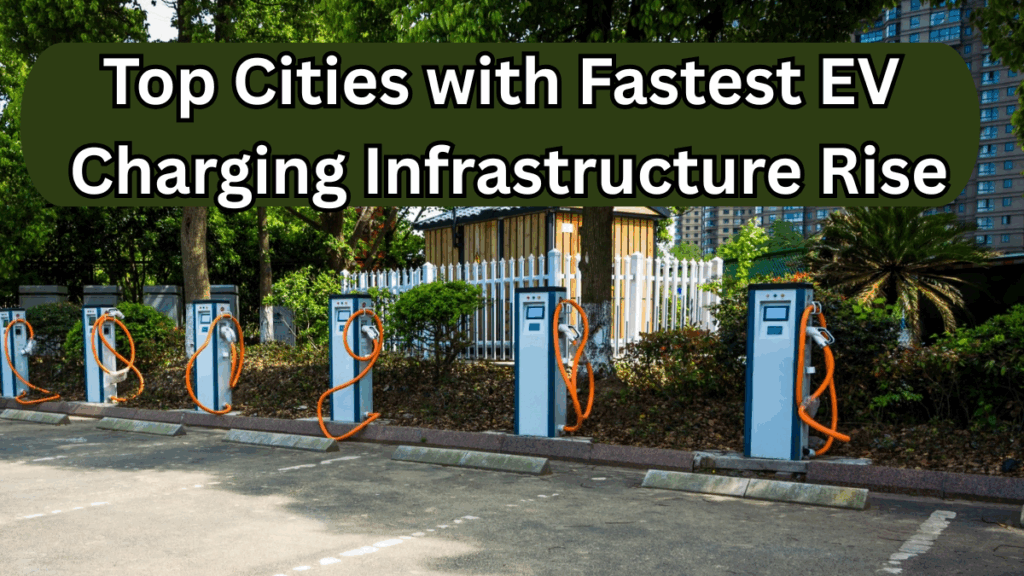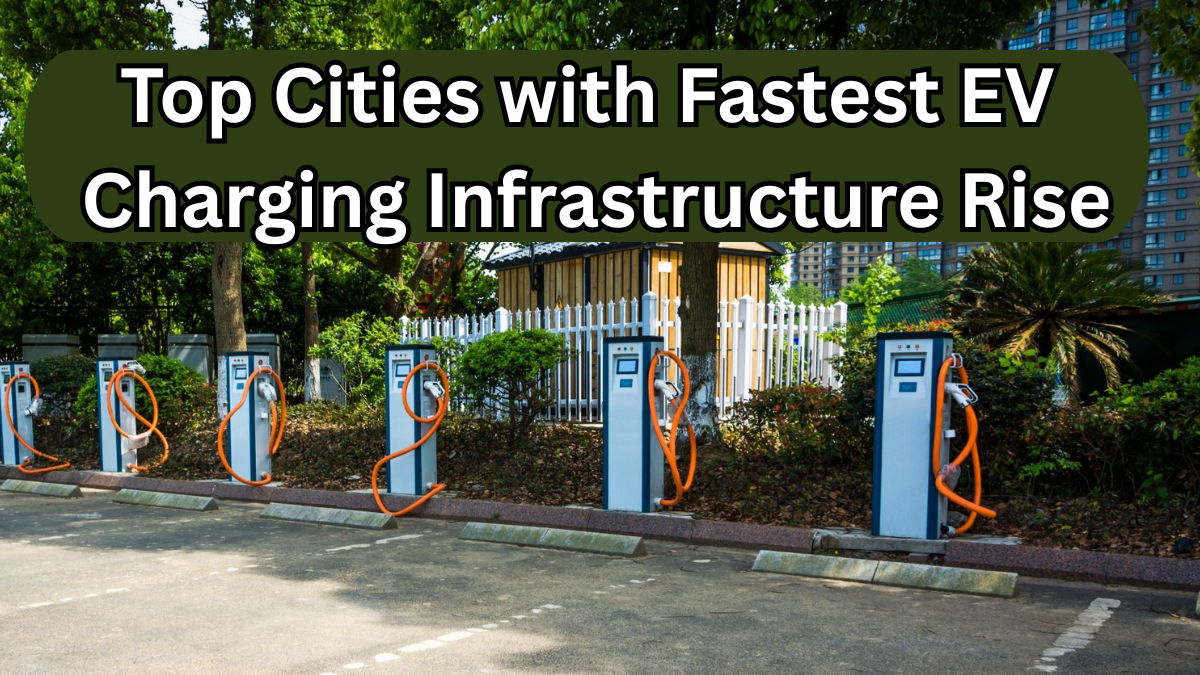India is fast-tracking its journey toward clean mobility, and the numbers speak for themselves. As more citizens embrace electric vehicles (EVs), the demand for a well-spread charging network is higher than ever. In 2025, several cities have taken the lead in setting up robust EV infrastructure. Let’s explore the top cities with EV infra expansion that are making headlines this year.

Why EV Charging Infrastructure Is So Important
The shift to electric vehicles hinges on accessible charging points. Here’s why charging infrastructure is a critical part of India’s EV success:
-
Encourages more consumers to adopt EVs
-
Reduces range anxiety, a key concern for new buyers
-
Supports government mandates on carbon emission reduction
-
Enables smoother integration of EVs into public and private transport networks
Top Cities with EV Infra Expansion in 2025
These Indian cities have emerged as forerunners in expanding electric car charging stations in 2025:
EV Infrastructure Leaders – India 2025
| City | Charging Stations (2025) | YoY Growth | Key Initiatives |
|---|---|---|---|
| Delhi | 3,500+ | 40% | Public-private partnerships, mall & metro chargers |
| Bengaluru | 3,200+ | 38% | Charging every 4 km, startup involvement |
| Mumbai | 2,800+ | 45% | Integrated with train stations and malls |
| Hyderabad | 2,100+ | 55% | EV parking hubs, two-wheeler focus |
| Chennai | 1,900+ | 50% | Solar-powered stations, buyer subsidies |
| Pune | 1,600+ | 52% | EV-friendly housing, fast-charging routes |
| Ahmedabad | 1,400+ | 47% | Government support, corridor charging points |
What’s Driving This Growth?
The rapid rollout of electric car charging stations 2025 is being propelled by a mix of national and local-level efforts:
-
FAME II subsidies and state EV policies
-
Corporate investments in charging technologies
-
Urban infrastructure plans focusing on clean transport
-
High EV penetration in metro and tier-1 cities
Fast-Charging: A Growing Trend
In 2025, fast-charging technology is gaining popularity. Cities like Bengaluru and Mumbai are setting up ultra-rapid charging stations that can power an EV up to 80% in under 45 minutes. This is making electric mobility even more practical for daily commuters.
India’s EV Future: 2025 and Beyond
Here’s what we can expect by the end of 2025:
Projected EV Trends
| Metric | 2025 Estimate |
|---|---|
| Total EVs on Indian roads | 6 million+ |
| Public EV charging stations | 25,000+ |
| Highways with EV fast-charging | All major national corridors |
| Smart EV cities/zones | 100+ urban mobility districts |
What Challenges Still Exist?
Even with all this progress, India faces a few hurdles:
-
Inconsistent access to chargers in smaller towns
-
Grid overload risks in dense metro areas
-
Need for uniform charging standards
-
Real-time updates for charger availability
Addressing these will be key for sustaining long-term growth of electric car charging stations 2025 across all regions.
FAQs
Q1. Which Indian city has the most EV charging stations in 2025?
Delhi leads the pack with over 3,500 EV charging stations, thanks to progressive policies and metro-wide installation drives.
Q2. Why are Bengaluru and Mumbai listed among the top cities with EV infra?
Both cities have heavily invested in fast-charging corridors, integrated urban transport networks, and EV-friendly policies, making them early adopters.
Q3. Are tier-2 cities catching up in terms of EV infrastructure?
Yes, cities like Jaipur, Lucknow, and Indore are seeing accelerated deployment of charging stations, although still trailing behind metros.
Q4. Will EV charging become more accessible in residential areas?
Absolutely. Many housing societies and apartment builders are now mandating EV chargers, and local governments are offering rebates for home installations.
Final Thoughts
The EV ecosystem in India is evolving quickly, and top cities with EV infra are laying the foundation for a clean transport future. With a growing network of electric car charging stations in 2025, India is on the road to becoming a global leader in sustainable mobility.
Click here to learn more
